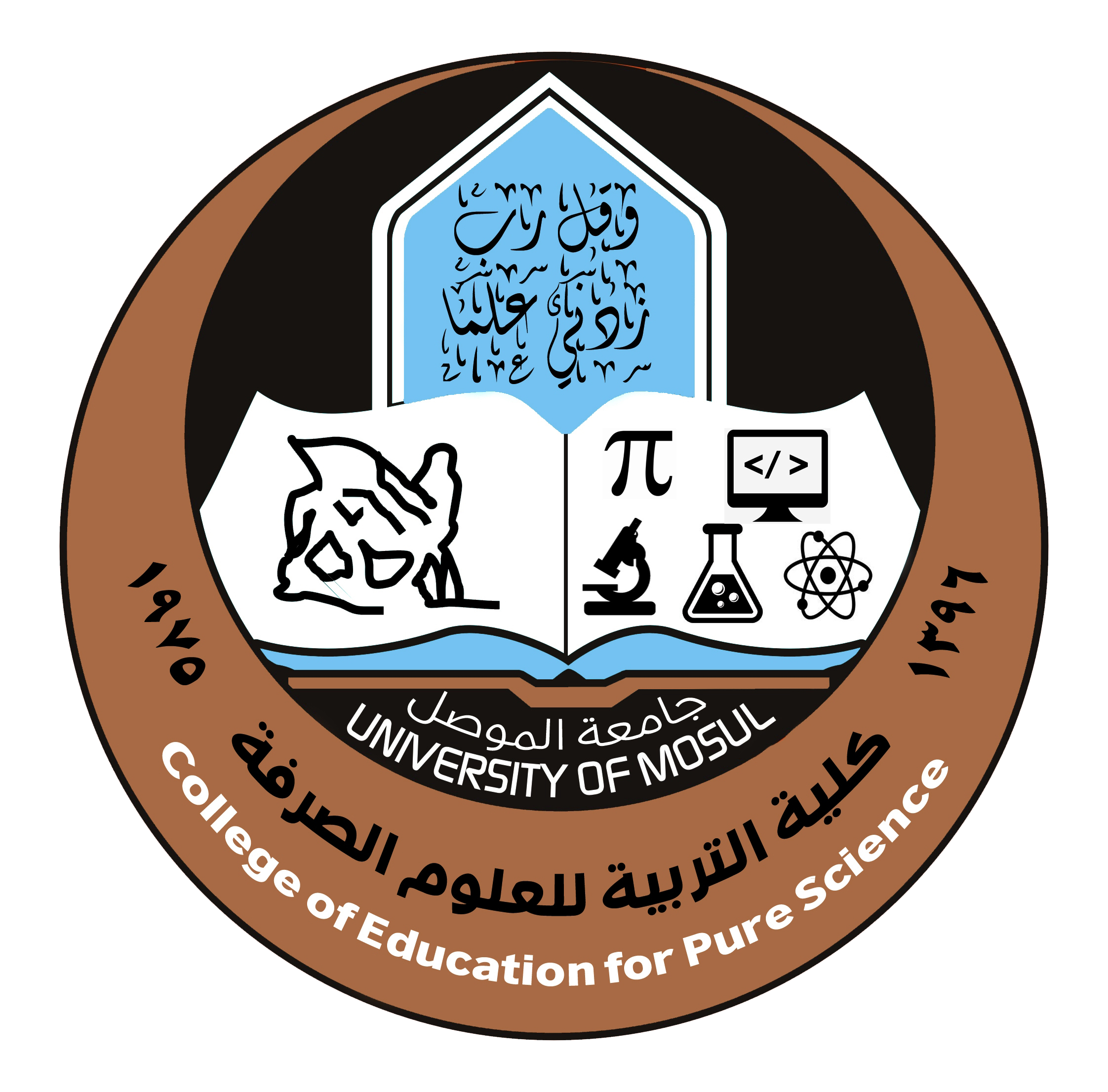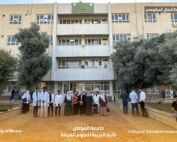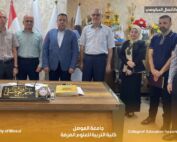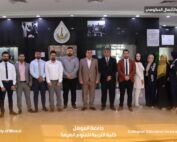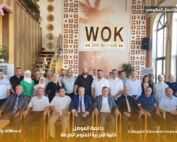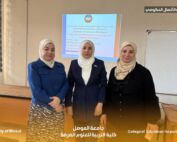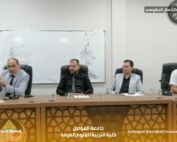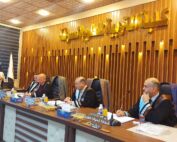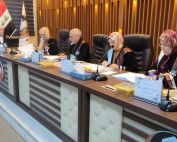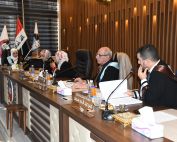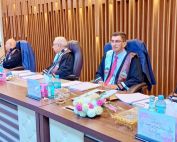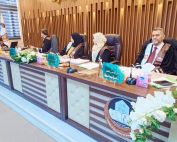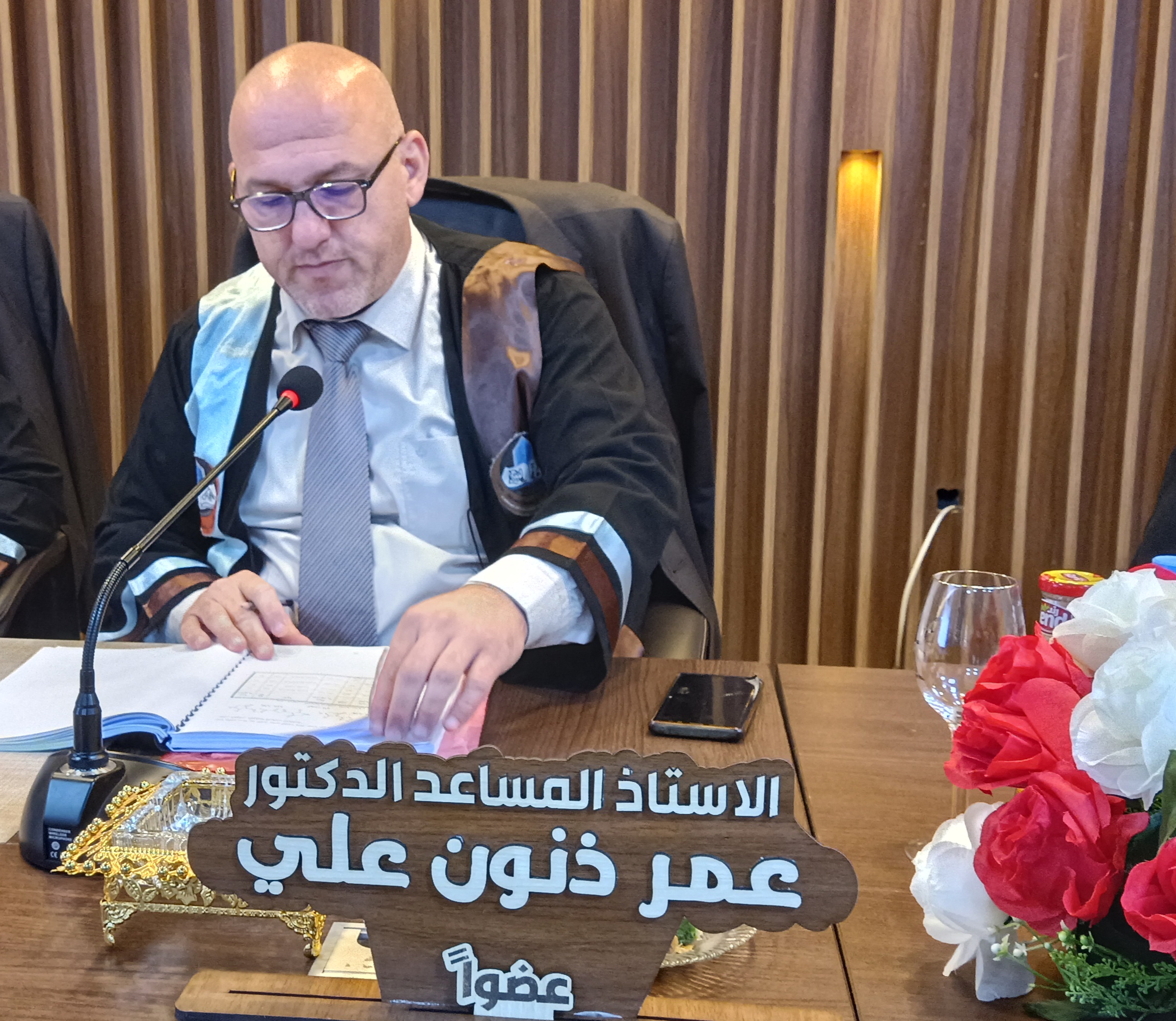10 August، 2022
Master Thesis Viva-Biology Department
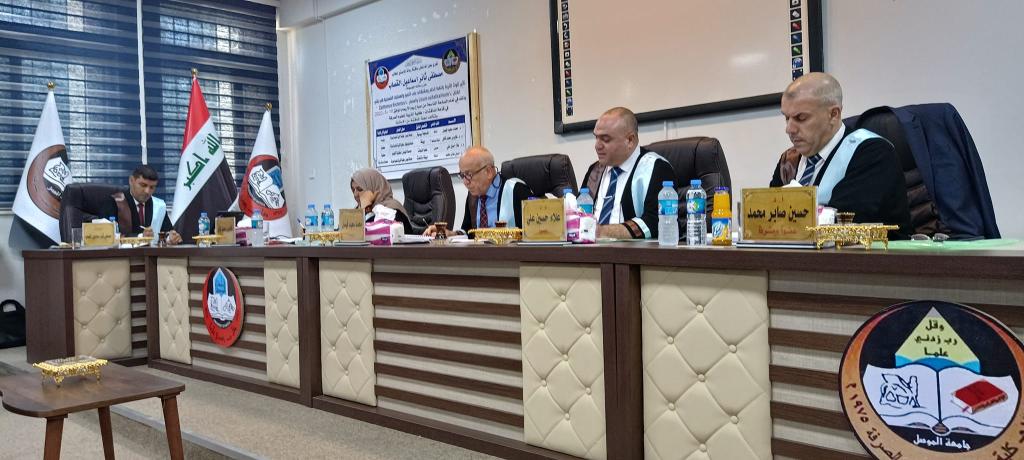
Master Thesis Viva in the College of Education for Pure Science entitled ” Effect of Soil pollution with Crude oil and its derivatives on growth and physiological processes in Flax Linum usitatissimum L. and Safflower Carthamus tinctorius L “The College of Education for Pure Science, University of Mosul, has done the Master Thesis Viva entitled ” Effect of Soil pollution with Crude oil and its derivatives on growth and physiological processes in Flax Linum usitatissimum L. and Safflower Carthamus tinctorius L “,On Wednesday, August 10, 2022, the respected Dean of the College, Assistant Professor Dr. Qais Ismail Ibrahim, the Honorable Scientific Associate and Administrative Associate, the Honorable Head of the Department of Biology, and a number of the college’s teachers were attended the viva. This study, presented by the M.Sc. Student Mostafa Thaier Ismail in the Department of Biology, The Study conducts in the Department of Biology/ College of Education for Pure Sciences / Mosul University. It aims to illustrate the effect of crude oil and mixture of used oils for car engines, and mixture of used oils for generator engines with concentrations (1,2 and 3)% each alone with growth of Flax (Linum usitatissimum ) and Safflower (Carthamus tinctorius ) and some physical operation and concentration of some enzymes and food value such as Protein, Carbohydrate in addition to some Nutrients elements for these two plants.The results showed that treating the soil with crude oil at concentration (3)% , caused a significant decrease in the length of the shoot and root groups of Flax and Safflower plants, which amounted to (13.50 , 16.83) cm and (24.67 , 15.67) cm respectively. In addition to the decrease in the concentration of Chlorophyll b in the leaf tissues of the two plants, which amounted to (0.551, 0.547) mg/g of wet weight compared to the control treatment. It also caused a significant decrease in the concentration of Sodium in the root group of the two plants, which amounted to (0.500 and 0.600) mg/g respectively.Also the results showed that treating the soil with crude oil at concentration (3)% led to a significant decrease in the Water content and the concentration of both Anthocyanin and Protein compared to the control treatment. The results also showed that treating the soil with a mixture of used generator engine oil at concentration (3)% caused a significant decrease in the concentration of Magnesium in the shoot and root groups of the two plants, which amounted to (2.200, 1.650) and (3.300, 3.673) mg/g respectively. As for the treatment with a mixture of used car engine oil led to a significant decrease in the concentration of Xanthophyll in the leaf tissues of Flax plant, which amounted to (0.026) mg/g dry weight, and a decrease in the concentration of Phosphorous in the shoot group of Flax and Safflower plants, which amounted to (0.617, 0.713) mg/g respectively, when treated with used car engine oil on (3)%.It was also noted that treating the soil with crude oil and a mixture of used motor and generator oils at the above concentrations, specifically at the concentration (3)% caused a significant increase in the concentration of Proline and the evidence of damage. It also led to an increase in the concentration of Peroxidase enzyme, which amounted to (0.052) µmol/ml and super oxide dismutase enzyme (0.089) µg/ml/min compared with control group. The results showed the superiority of Flax plant in the length of the two shoot and root groups and the content of Carotene and Xanthophyll upon Safflower plant, while the last have a superiority on Flax plant in the wet and dry weight in the shoot group, and the concentration of Anthocyanin, Protein and Water content, and the concentration of Calcium and Potassium in the root group. The Viva committee was chaired by Prof. Dr. Mohammed Saeed Faisal Mosul University College of Education for Pure Science and the membership of Asst. Prof. Dr. Tawoos Mohammed Kamel Kirkuk University College of Education for Pure Sciences, Lect. Dr. Alaa Hussein Ali Mosul-University College of Science and under the supervision and membership of Prof. Dr. Hussein Saber Mohammed Ali Al-Rashedy / University of Mosul / College of Education for Pure Science.
